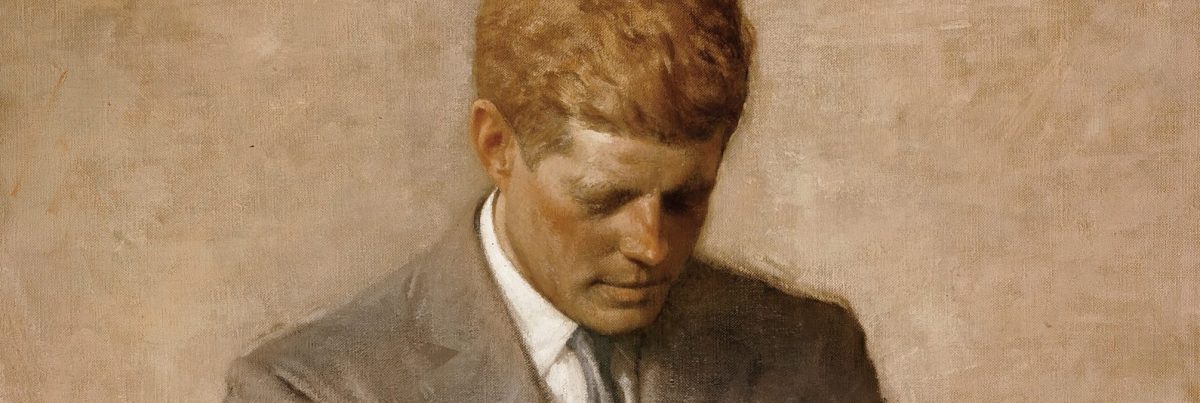Barack Obama’s official portrait by Kehinde Wiley elicited strong responses from both fans and critics of the vibrant painting. But looking back at presidential portraits through American history, there is another piece that consistently draws the eye: The portrait of John F. Kennedy, which was painted years after his death and unveiled in 1971. It shows Kennedy standing with his arms crossed and eyes downcast, his face obscured. The aesthetic of the painting was shaped by JFK’s widow, Jackie. “The only stipulation she made,” Shikler told Peoplein 1981, according to Town & Country, “was, ‘I don’t want him to look the way everybody else makes him look, with the bags under his eyes and that penetrating gaze. I’m tired of that image.’” Shikler looked through photographs of the late president to start with the initial sketches. He ultimately used an image of Ted Kennedy at his brother’s grave to serve as a loose inspiration for the work. When Jackie saw the sketch, she chose it over several others immediately. However, the style of the painting was not meant to evoke Kennedy’s death. “I painted him with his head bowed, not because I think of him as a martyr, but because I wanted to show him as a president who was a thinker,” Mr. Shikler told The Washington Post in 1971. “A thinking president is a rare thing.” He chose not to paint JFK’s eyes because he wanted to do something with more meaning. “I hoped to show a courage that made him humble,” he said.
Thanks for reading InsideHook. Sign up for our daily newsletter and be in the know.


















